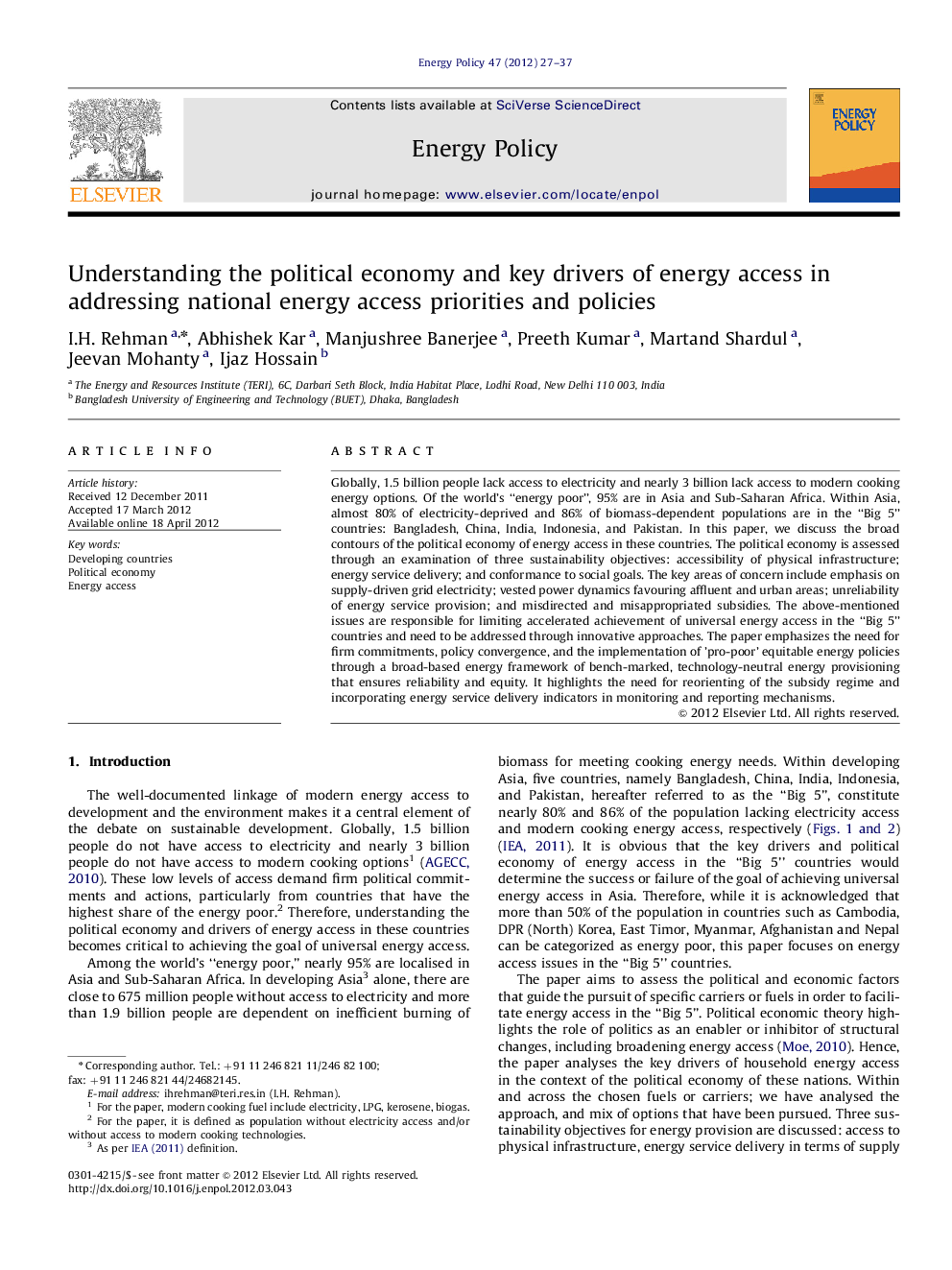| Article ID | Journal | Published Year | Pages | File Type |
|---|---|---|---|---|
| 995679 | Energy Policy | 2012 | 11 Pages |
Globally, 1.5 billion people lack access to electricity and nearly 3 billion lack access to modern cooking energy options. Of the world’s “energy poor”, 95% are in Asia and Sub-Saharan Africa. Within Asia, almost 80% of electricity-deprived and 86% of biomass-dependent populations are in the “Big 5” countries: Bangladesh, China, India, Indonesia, and Pakistan. In this paper, we discuss the broad contours of the political economy of energy access in these countries. The political economy is assessed through an examination of three sustainability objectives: accessibility of physical infrastructure; energy service delivery; and conformance to social goals. The key areas of concern include emphasis on supply-driven grid electricity; vested power dynamics favouring affluent and urban areas; unreliability of energy service provision; and misdirected and misappropriated subsidies. The above-mentioned issues are responsible for limiting accelerated achievement of universal energy access in the “Big 5” countries and need to be addressed through innovative approaches. The paper emphasizes the need for firm commitments, policy convergence, and the implementation of 'pro-poor' equitable energy policies through a broad-based energy framework of bench-marked, technology-neutral energy provisioning that ensures reliability and equity. It highlights the need for reorienting of the subsidy regime and incorporating energy service delivery indicators in monitoring and reporting mechanisms.
► Limited emphasis on improved cooking programmes relative to electrification schemes. ► Strong disparity between rural and urban electrification and LPG access. ► Grid extension and subsidy on cooking fuels has limited success. ► Electricity access does not indicate transition to better cooking options. ► Technology neutrality in choosing suitable alternatives may led to improved access. ► There is need to re-orient energy subsidies and incentives. ► Physical infrastructure does not guarantee access to reliable energy services.
